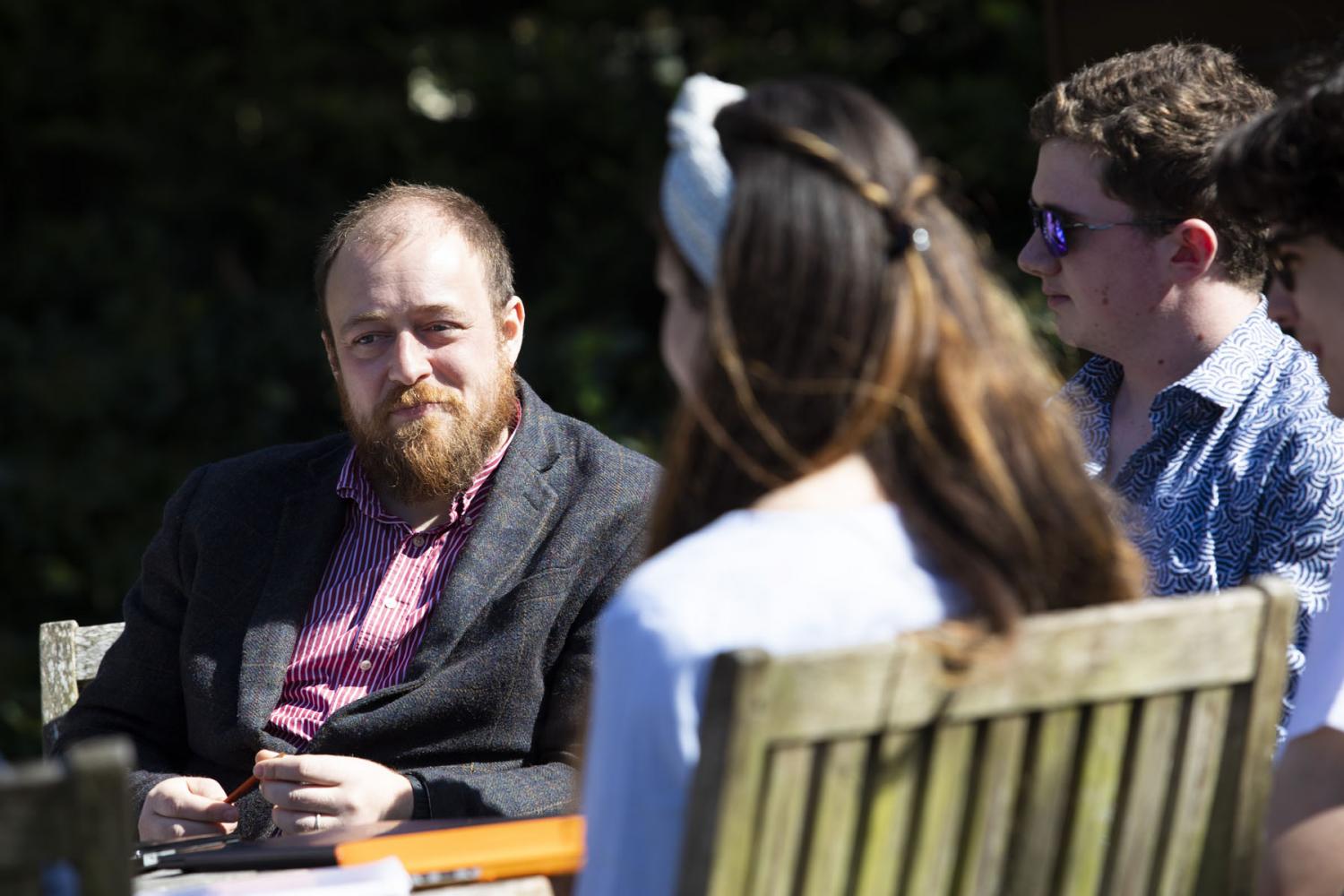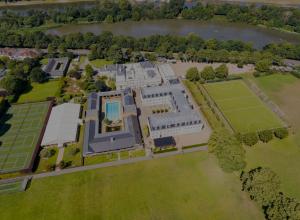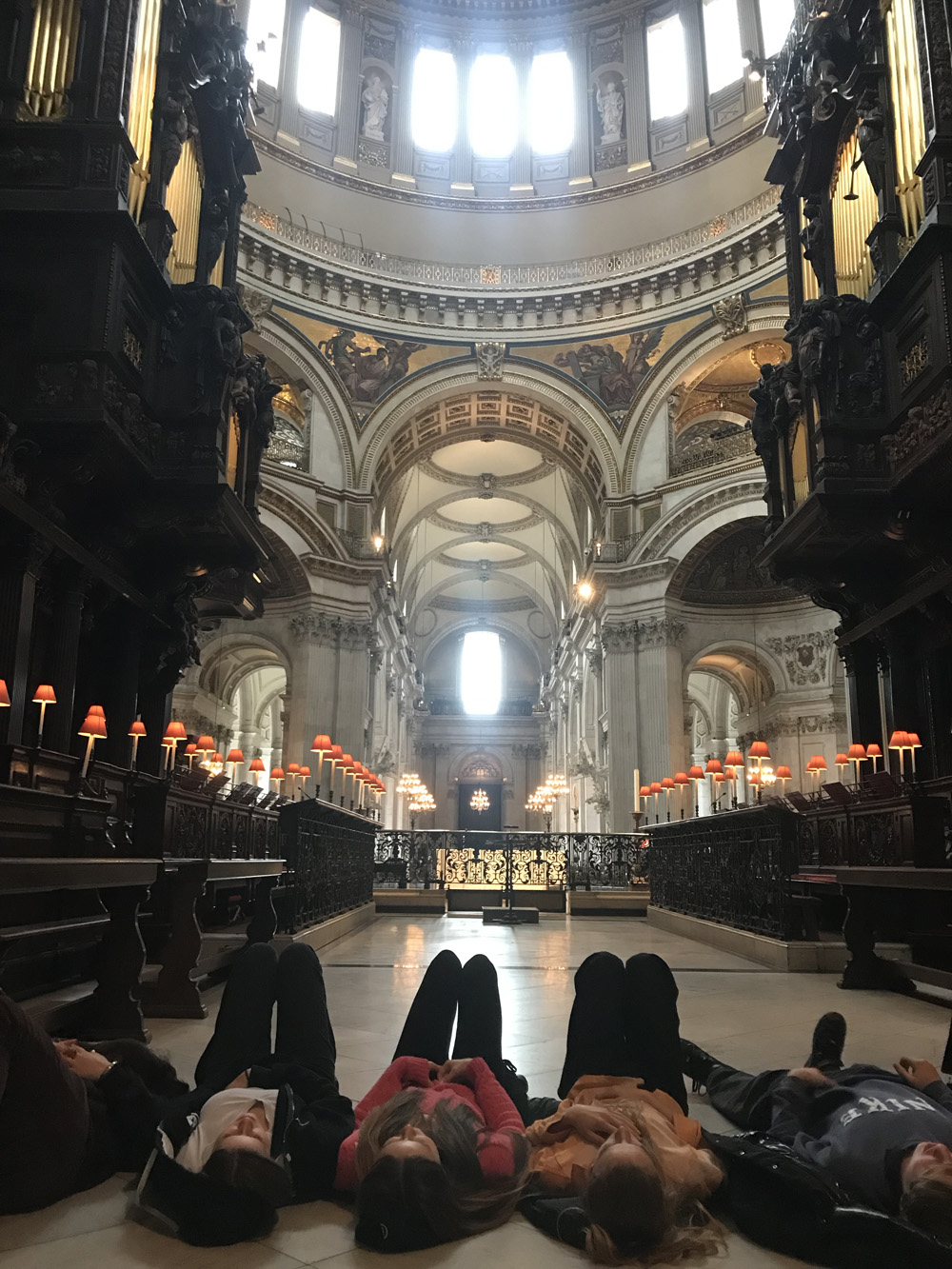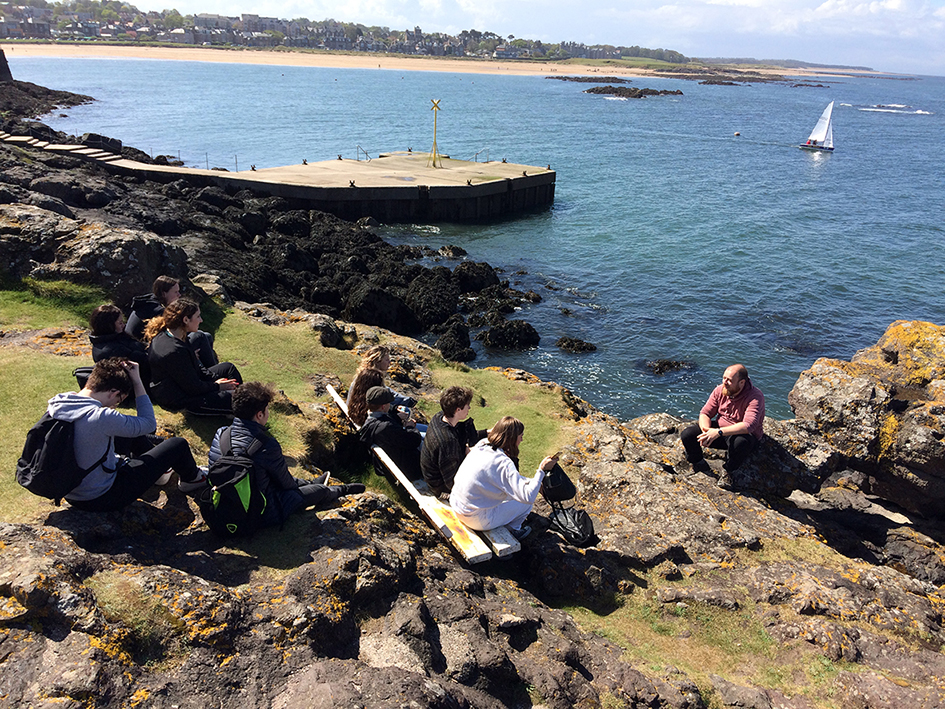Religious Studies is about considering who you are and how you relate to complex issues in the world. It challenges preconceptions you take for granted and poses questions which have preoccupied some of the greatest minds over the last three thousand years: How do we know right from wrong? Are some things genuinely evil or is it just opinion? Does God exist? And would it matter if she did?
Do humans have souls? Or are we just bundles of self-important chemicals? Are we free to make moral decisions? Is there life after death? In Religious Studies we explore some of the answers great thinkers have proposed and equip you to draw your own conclusions.
Religious Studies greatly increases understanding of current affairs, ethical issues and different cultures and religions. Pupils also develop abilities in communication, debate and critical thinking – skills that are invaluable in careers such as politics, law, education and for anyone seeking to make their way in the modern world.
GCSE
Pupils follow the AQA GCSE course, beginning in the 13s. For full details please see the AQA Website or the Harrodian GCSE Prospectus.
Course introduction
The course enables pupils to:
- Develop an in-depth understanding of the beliefs, teachings and practices of Christianity and Islam.
- Study key ethical issues in modern society such as abortion, euthanasia, the environment and capital punishment.
- Consider different viewpoints on these issues, formulating their own views and justifying them with solid arguments, as well as developing tolerance and sensitivity towards the beliefs of other people.
Course outline
Paper 1: The Study of Religions
The beliefs, teachings and practices of Islam and Christianity.
Paper 2: Thematic Studies
Relationships and families, Religion and life, Religion, crime and punishment, Religion, human rights and social justice
A Level
In the Sixth Form the department offers two different A Levels: Religious Studies and Philosophy. Students will not be able to take both options.

Religious Studies
Students follow the OCR A Level course. For full details refer to the OCR website https://www.ocr.org.uk/qualifications/as-and-a-level/religious-studies-h173-h573-from-2016/ or the Harrodian Sixth Form Prospectus.
This course has three components
Paper 1: Philosophy of Religion
Topics include the ancient philosophical influences of Plato and Aristotle, ideas around soul, mind and body, the classical proofs of God, and philosophy of language.
Paper 2: Religion and Ethics
The critical examination of various theories about how to tell right from wrong as well as application to euthanasia, business ethics and sexual ethics; meta-ethics and conscience.
Paper 3: Developments in Buddhist Thought
This component covers key aspects of Buddhist philosophy and practice, and explores how Buddhism has developed from its inception to the present day.
Entry requirements:
Previous study in Religious Studies is useful but not necessary. The course neither requires nor advocates any religious viewpoint. It is strongly recommended that students have attained a 7 or above in English at GCSE.
Philosophy
Students follow the AQA Philosophy A Level syllabus. The Philosophy course aims to provide students with an introduction to some of the main themes of analytic philosophy. The course focuses on a number of key philosophical arguments looking at the period from the enlightenment to the present day.
Paper 1: Epistemology and Moral Philosophy
In Epistemology students look at various theories around the concepts of knowledge and reality. They consider what it is that separates ‘knowing’ from ‘believing’, whether or not knowledge is possible at all, and what it means for a belief to be ‘justified’.
In Moral Philosophy students examine various theories of justice as well as ask if ethical claims are ever certain. They apply ethical theories to issues including lying, eating meat and simulated killing (in films and computer games).
Paper 2: The Metaphysics of God and the Metaphysics of Mind
In Metaphysics of God students engage with the classical arguments for God’s existence and sceptical responses.
In Metaphysics of Mind, students look at various accounts of what a ‘mind’ actually is. They examine both traditional accounts as well as assess the impact that contemporary neuroscience has had on the debate.
For more specific year-by-year information, please refer to our Curriculum Handbooks/Information Booklets.
Entry Requirements:
It is strongly recommended that students have attained a 7 or above in both English and Mathematics at GCSE; this reflects the high level of analytic and linguistic reasoning required by philosophy.
Extra-Curricular activities
In the 14s, pupils visit the Jamyang Buddhist Centre in Kennington and the Buddhapadipa temple in Wimbledon.
At A Level, students of both Religious Studies and Philosophy visit Edinburgh for a weekend trip exploring key philosophical thinkers.
Staff
Head of Religious Studies: Mary Sanders
Head of Philosophy: Sam Wardell
Other teachers of Religious Studies and Philosophy: please select the relevant departments on the dropdown menu to view our full staff list by clicking here.










